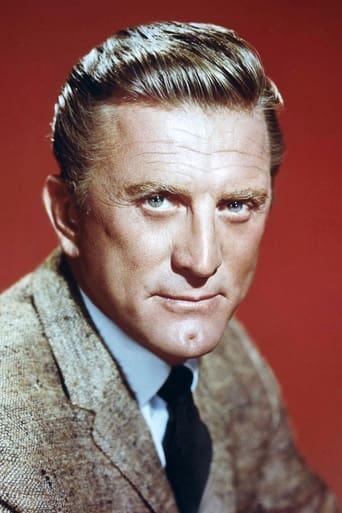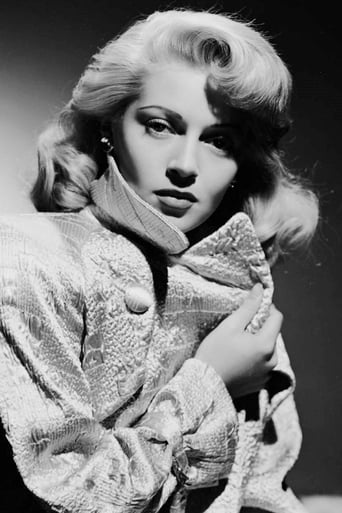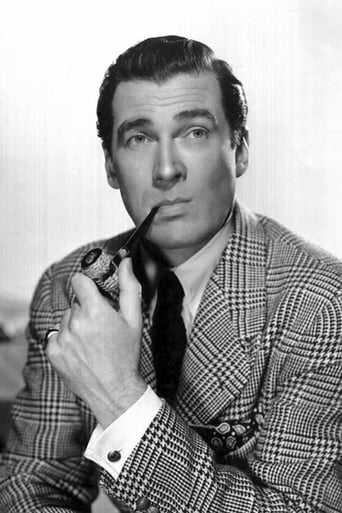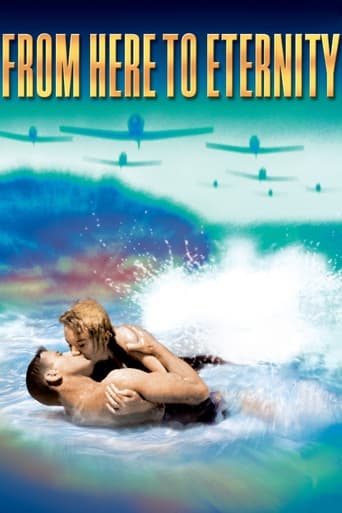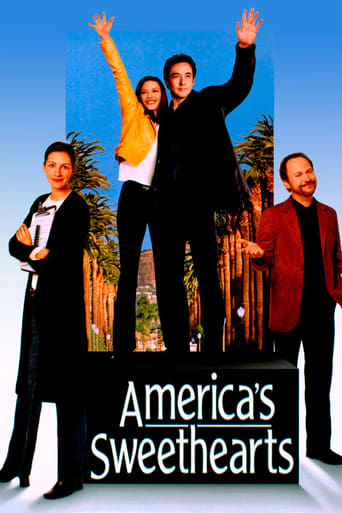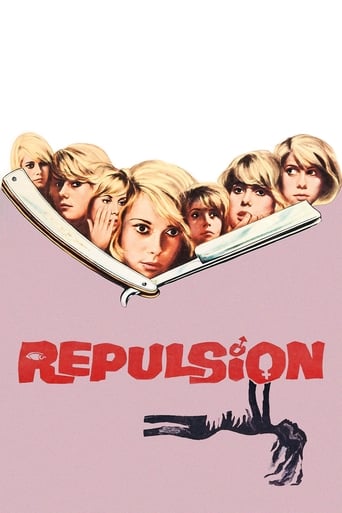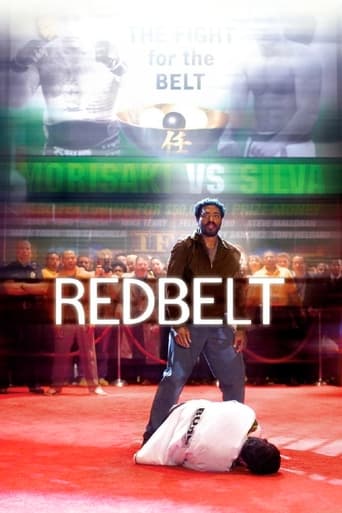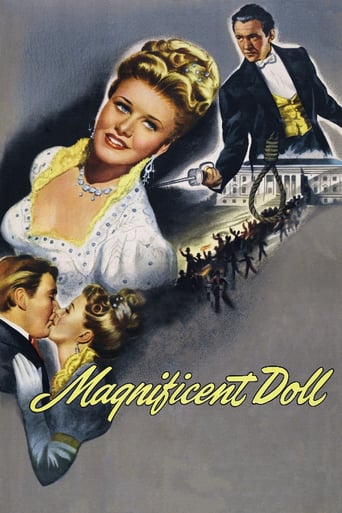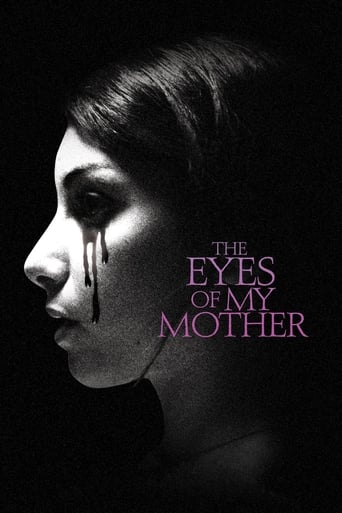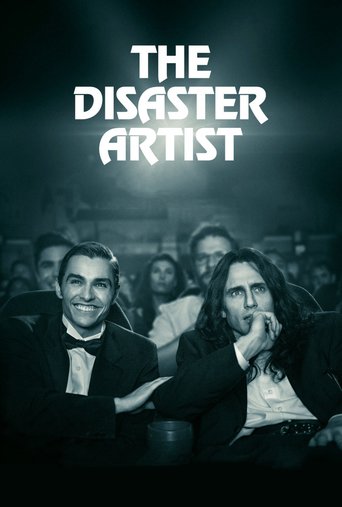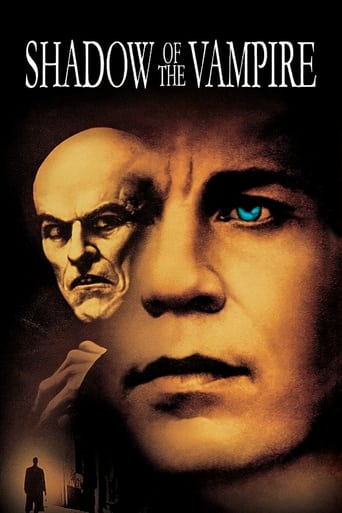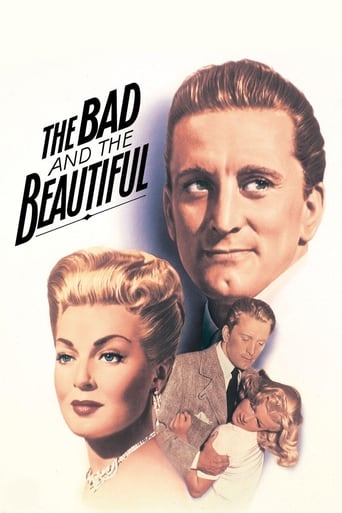
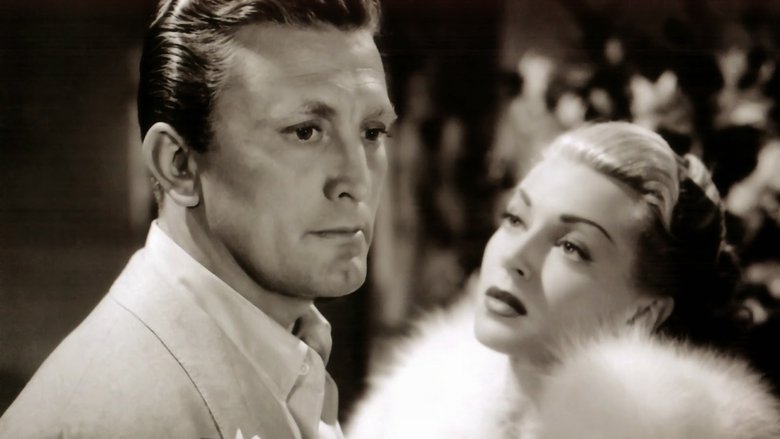
The Bad and the Beautiful (1952)
Told in flashback form, the film traces the rise and fall of a tough, ambitious Hollywood producer, Jonathan Shields, as seen through the eyes of various acquaintances, including a writer, James Lee Bartlow; a star, Georgia Lorrison; and a director, Fred Amiel. He is a hard-driving, ambitious man who ruthlessly uses everyone on the way to becoming one of Hollywood's top movie makers.
Watch Trailer
Cast
Similar titles
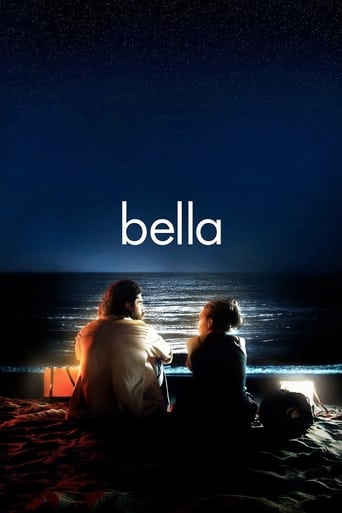
Reviews
I like the storyline of this show,it attract me so much
Did you people see the same film I saw?
It's an amazing and heartbreaking story.
A great movie, one of the best of this year. There was a bit of confusion at one point in the plot, but nothing serious.
I really liked the way the story was told in this movie - three vignettes that feature different characters, all of whose lives are affected by film producer Jonathan Shields. All three start off with these characters partnering with Shields to become successful in the film industry, and all of them end with Shields "ruining" their lives... that is, until they become more successful without Shields. The only person that actually does lose something of value is the writer Bartlow, whose wife is killed in an airplane crash that Shields indirectly causes. Still, he goes on to become a famous writer, so it isn't all bad news.The movie is a little dated today - the film industry was much simpler back then than it is nowadays - but "The Bad And The Beautiful" is still an entertaining look into the inner workings of Hollywood.
I have seen this film many times and the thing that is interesting is how swiftly time seems to pass for the viewer. Despite its dark subject matter about a cutthroat producer who will use anything and anyone to succeed; ruthlessness being a common Douglas theme and motif, there is this undeniable sense of warmth and familiarity between the characters and a sense of family as the narrative comes to its conclusion. Yes, Jonathan Shields as played by Douglas, has done terrible things to this wildly popular actress Georgia Lorrison, the imminently successful director Fred Amiel, and the Pulitzer Prize winning author James Lee Bartlow. But as Lana Turner, who plays the actress, holds the phone for Barry Sullivan, who plays the director, while Dick Powell, who plays the author share cheeks together listening in, you feel there is something ambiguous and paradoxical about 'The Shields Touch'.When I first saw this movie, it seemed somewhat light and just this side of a soap opera. But over the years it has grown on me and in stature as a serious work of cinema. Nowadays it strikes me as a strange and glossy form of verisimilitude. There is this sense that at its core it is telling the truth about a particular age in Hollywood when the studio system was in its heyday and does so with honest sensitivity and something more than bordering on fond regard.None of the characters are complete ogres and each has something likable about them. Many of the characters like Gaucho, the Latin Lover, played by Gilbert Roland, or his date, the Dancing Blonde played by Lucy Knoch, represent stock types more or less to varying degrees. For a long time I thought a writer's life must be something like the way Dick Powell portrayed it to be and was looking forward to adopting such a lifestyle. At times you feel like you are getting an inside look at workings of the Hollywood system. Or are you? Hard to tell exactly the difference between reality and illusion here. Jonathan confesses to Georgia that he feels a letdown after each and every production that he puts in the can and that this feeling is getting worse; yet I felt no letdown at the end of this film. Quite the opposite. Every time I see this film my regard for it increases and it's getting better. I also like the way it does not call attention to the techniques it uses to convey its story. The handling of time in the flashbacks makes the story seem non-linear although this is not, strictly speaking, the case at all. Even though it's photographed in Black and White, oddly enough I often remember it as though it were filmed in color.There is evil in this story and Kirk Douglas as Shields largely represents this. However, it is amusing how all the main characters have been affected by this Faustian Bargain that Jonathan the producer seems largely to shoulder on his own. After all, James Lee Bartlow's wife, Rosemary, as played by Gloria Grahame, has died in a horrible plane crash along with the contract player known as the Gaucho. Surely that is enough to condemn the machinations of Hollywood as a corrupt and unworthy system.But still there is that ending that gnaws at the imagination. James Lee Bartlow, Fred Amiel, and Georgia Lorrison have each survived their encounters with Jonathan Shields and are now more successful than ever. Feels like some kind of Hollywood ending shaping up. Could there be a story in all this? Something that would pack them in at the box office? Hmmnn, no, there's nothing to that but your average everyday Hollywood hype. Still, I would give my eye teeth to hear Shields begging us to give him one more shot with this new 'bright idea' and big project he has in the works. Harry Pebbel is out of his mind. 'Give the Devil his due'!But still... listen to him squirm.. about time, I say... did you hear that? Boy, he must be really desperate...
Lana Turner headlines this all-star Vincente Minnelli film which shows the glitz and glamour of Hollywood movie-making for what it is, a cut-throat business of wanna-bes and has-beens. Actors, directors, film crew, writers - they toil for years in b-pictures for a chance on a big-scale epic, but some get there and some don't. And some people's word don't mean much to those who look out for themselves. Kirk Douglas is one such movie-maker whose director/producer father died and left him penniless, but he vows to ram the name of Shields down the throat of Hollywood. He befriends director Barry Sullivan, who is tongue-tied when he tries to sell himself, but associating with the egomaniac Kirk helps him with his career. Enter Lana Turner who is the daughter of a much loved and respected actor, who's also dead, but she now drinks and does bit parts and toils and drudges on, until Kirk meets her. Walter Pidegon is a producer who invests in minor horror movies, but gets into mega money when investing into a major artistic film, courtesy of Kirk and Barry. Dick Powell wrote a best-selling novel which Hollywood is making into a major motion picture, but Kirk needs him to write the screenplay. Will he get him? Dick's wife, Gloria Grahame, tries to let him work, but always seems to be taking up a lot of his time. This film shows all the struggles and dreams of those in Hollywood without passing judgment on them. Director Vincente Minnelli had a way of taking a subject matter, putting it on celluloid, and making it not only entertaining but making it feel like it came from the Smithsonian museum, like it was art on a wall. But he does have the aid of all the technicians from the departments at the peak of the craft. But under his watch, they all must past muster, and they all come in grade-A fashion. The story of how Kirk Douglas affects the lives and careers of those around him is told in three major sections: the first by the point of view of Barry, then it's Lana's perspective, and thirdly, Dick Powell. This film won 5 out of 6 Oscars, only losing Kirk's acting award. But Gloria Grahame, who was in the film for not even 10 minutes, did win. Some say she won for giving good performances in all the movies she made in 1952 and not only this one, but this is the really big, prestigious, and respected one she made that year. She is very memorable as a flirty wife, with an insatiable appetite. I can't believe I've never reviewed this film, as I am a big Lana Turner fan; I guess I thought I had nothing to add. But from day one that I saw this film years ago, I was hooked. The day I saw it, I watched it three times in a row that same day. That is very rare for me. One of the other very few films I've seen in that way is "Sudden Fear," another 1952 film with Gloria Grahame, in which she excels. All the stars of "The Bad and the Beautiful" are great and the aesthetics are superlative. And, that car scene of Lana's is a personal highlight. And, yes, that's actor John Houseman who helped to produce this film. And, Charles Schnee wrote the screenplay and won an Oscar for his eloquent (just listening to the words as they speak is an experience, especially Gloria Grahame in her southern belle accent) and three-dimensional treatment of Hollywood at its best and worst. If you haven't seen this slice of Hollywood - then you flat out don't care about good movies. Period.
Who is Jonathan Shields? That is the story Vincente Minnelli drama is trying to tell. There is a Orson Welles 'Citizen Kane' feel to the film, as there are three stories told about Jonathan Shields through eschews the traditional linear, chronological narrative and tells Shield's story entirely in flashback using different points of view, many of them from people that Shield done wrong to. The movie starts in Hollywood, screenwriter James Lee Bartlow (Dick Powell), movie star Georgia Lorrison (Lana Turner), and director Fred Amiel (Barry Sullivan) has been gather up by movie producer Harry Pebbel (Walter Pidgeon) to help Jonathan Shields (Kurt Douglas) with his newest movie, but each refuse, and tells Harry the reason why. The movie has a unreliable narrator to it, with each narrator recounts a different part of Shield's life, with each story partly overlapping follows a natural progression of events as Shields rises to fame. The movie is so like 'Kane', some critics are calling it 'Citizen Shields'. Each person's story is an act; so three people equal, three acts. The first narrator is the director that tells the story how Kurt Douglas launched his career with his help. The second act is told by the actress whom is the daughter of an also-failed father that become a strong and talented actress through Shields work. And the third act is taking a novelist and turning him into a credible and successful screenwriter. It's an amalgamation of so many stories that had been whirling around the industry for years. For some people, they believe Lana Turner's character is based on Diana Barrymore or Judy Garland. Kirk Douglas's Jonathan Shields is mixed with David O' Selznick, Darryl F. Zanuck & Val Lewton. Barry Sullivan's Fred Amiel on George Cukor of Gone to the Wind fame. For Dick Powell's character James Lee Bartlow, it's believe to be inspired by novelist Paul Eliot Green, William Faulkner or F. Scott Fitzgerald. Even the supporting cast might be based on real life characters such as supporting character Gilbert Roland whom play Gaucho might be a self-parody, but in my opinion I have a feeling it's based on Porfirio Rubirosa or better yet silent star Rudolph Valentino. Henry Whitfield (Leo G. Carroll) is mirroring Alfred Hitchcock. The three main actors (Turner, Powell, and Sullivan) are great in their roles. Everybody was outstanding in this film but Kirk Douglas stole the show. Kirk Douglas is great as the main role, playing the corrupt and amoral head of a major film studio in this Hollywood drama. For 1950's film, this movie has a lot of depth and comedy into it, that works. I was surprised to see the movie have women characters being alcoholic and sex addicts, rather than the charm roles they normally get in the films in those days. Supporting character Rosemary (Gloria Grahame) is one of those women characters. She was pretty funny in the role, but I don't agree that Gloria Grahame should have won the Oscar that year with her limited screen time,her ludicrous fake southern accent, as well, as the other actress who done better that year. Plenty of on-screen chemistry, tension and great casting make this film an outstanding drama. The only faults of the film are terms of its picture quality. We get a very nice, smooth looking transfer with much of the film grain and age related artifacts cleaned up. But there are moments where edge enhancement, shimmering and aliasing are so bad, you just can't help but get distracted away from the fine performances taking place underneath all that digital mess. When the image is free from these anomalies, contrast and black levels are superb. I also love the music. David Raksin, a marvelous composer as the film sports a jazzy and haunting tone similar to his later works in 'Laura'. Still this arrangement is over arranged and composer know his Jazz voicing but forgot a forceful melody line to add to it. Something like Cake decorations without the cake. Still, it's a cake worth eating. Check this movie out, for a great insight look at Hollywood.
